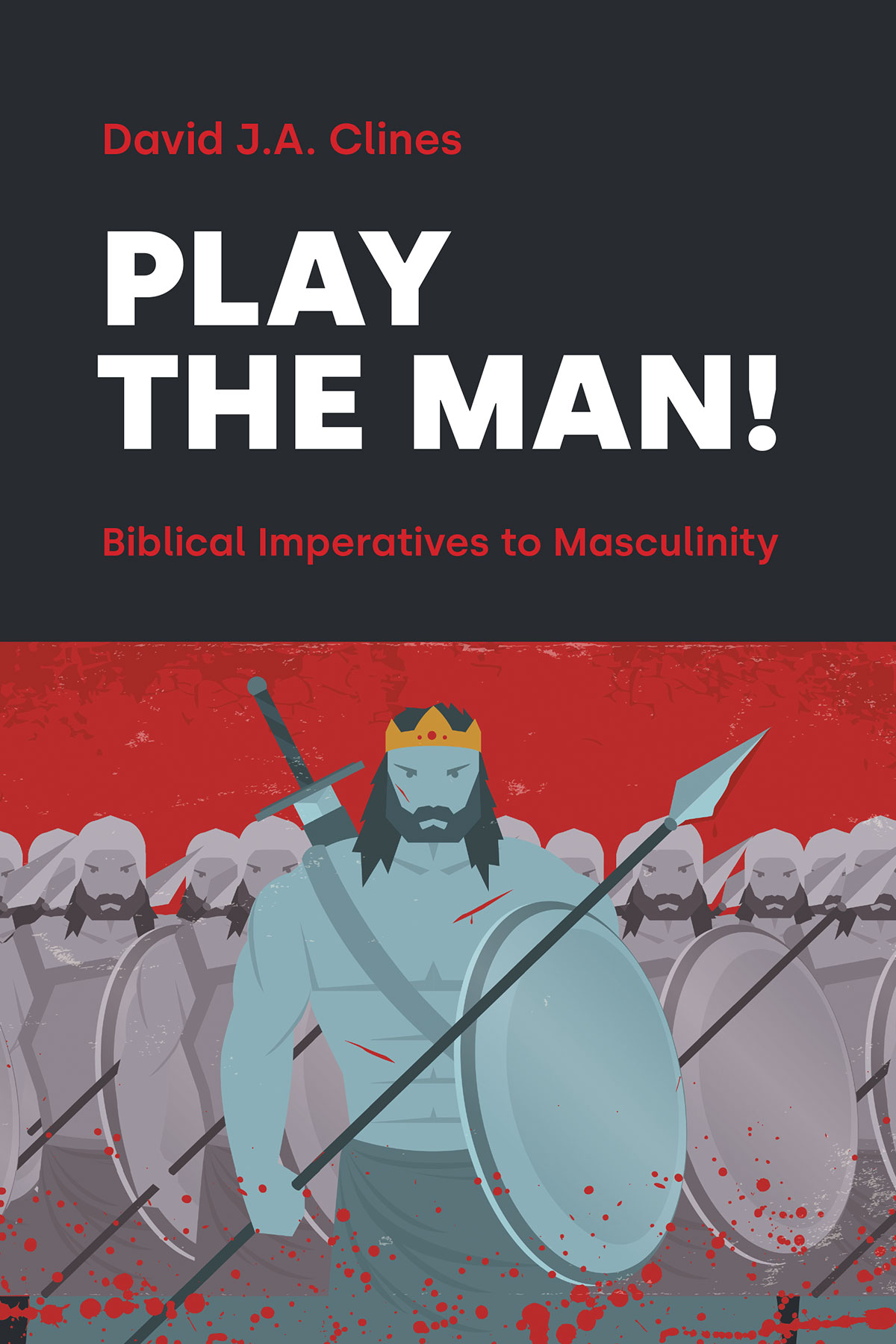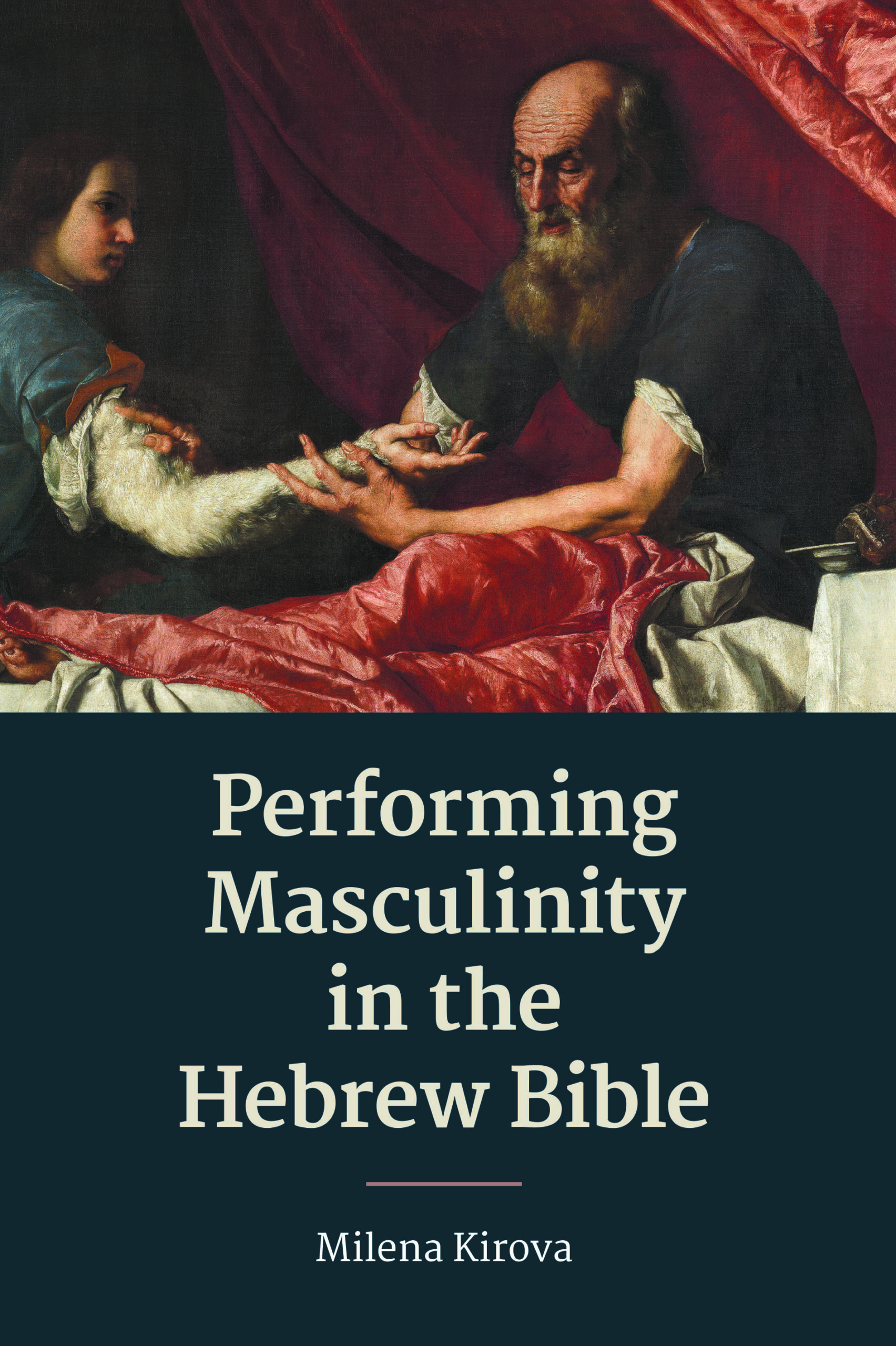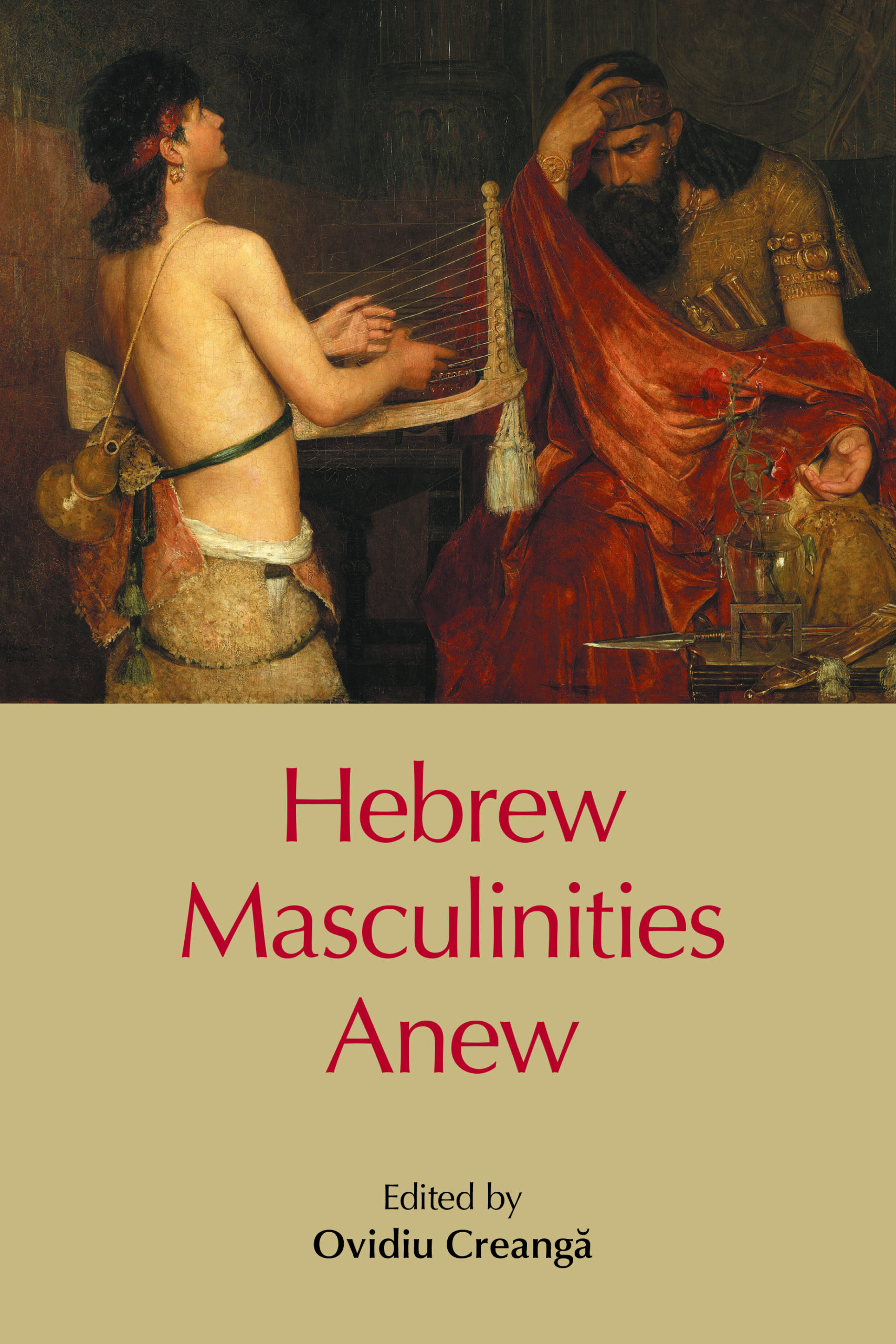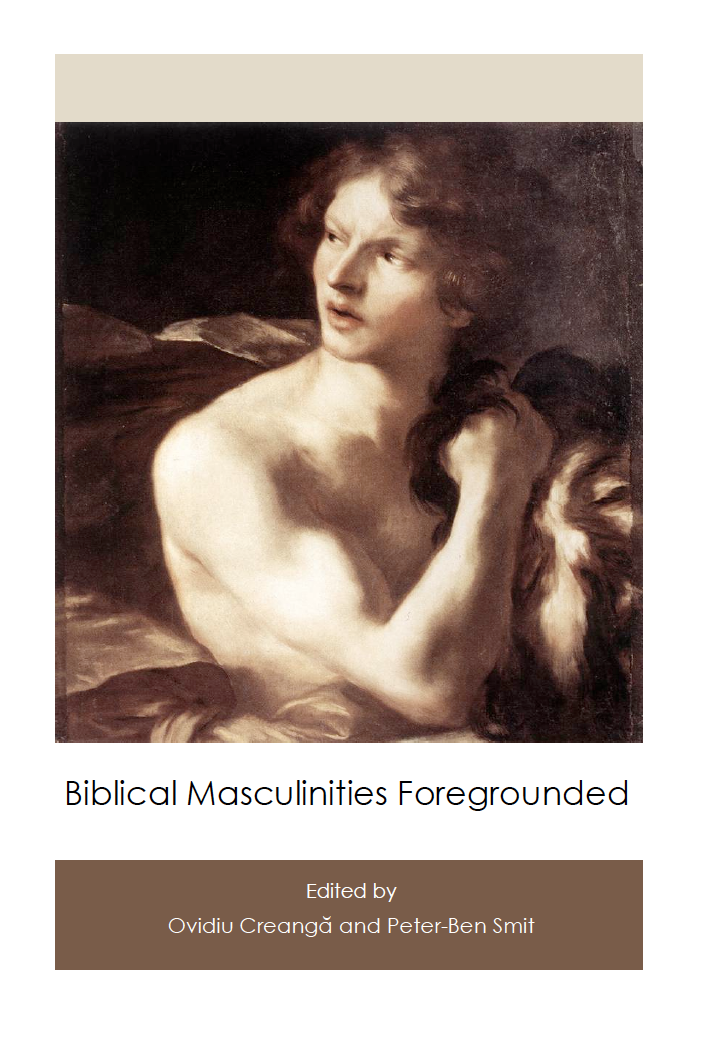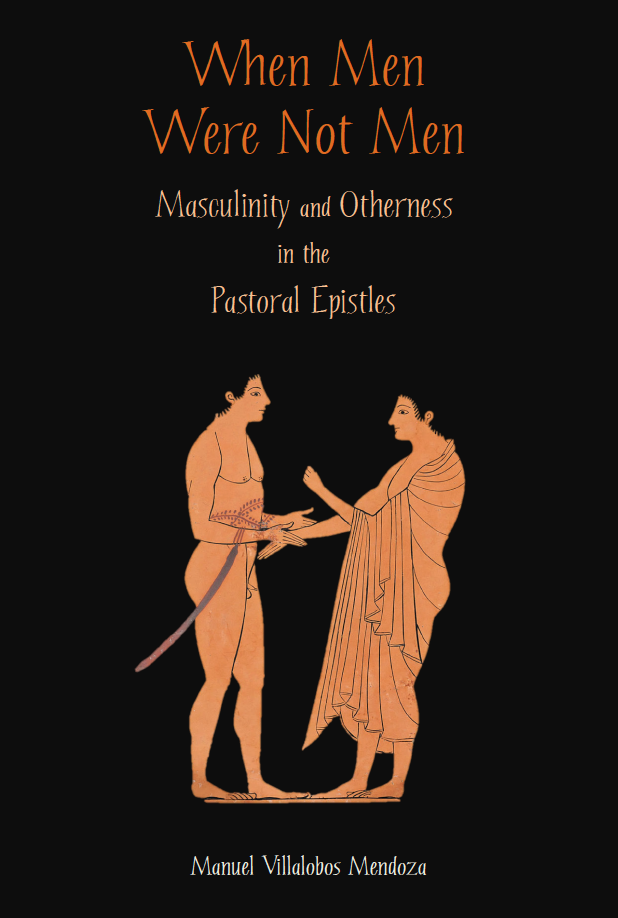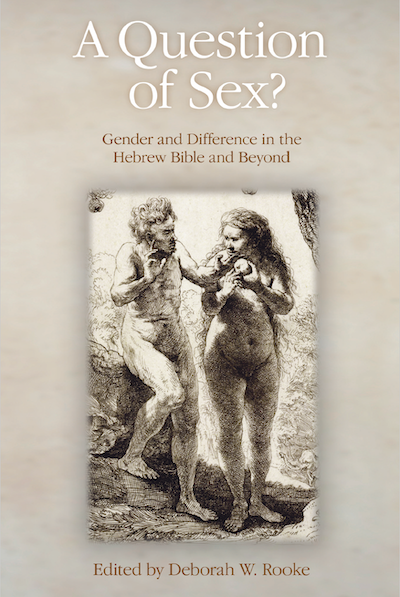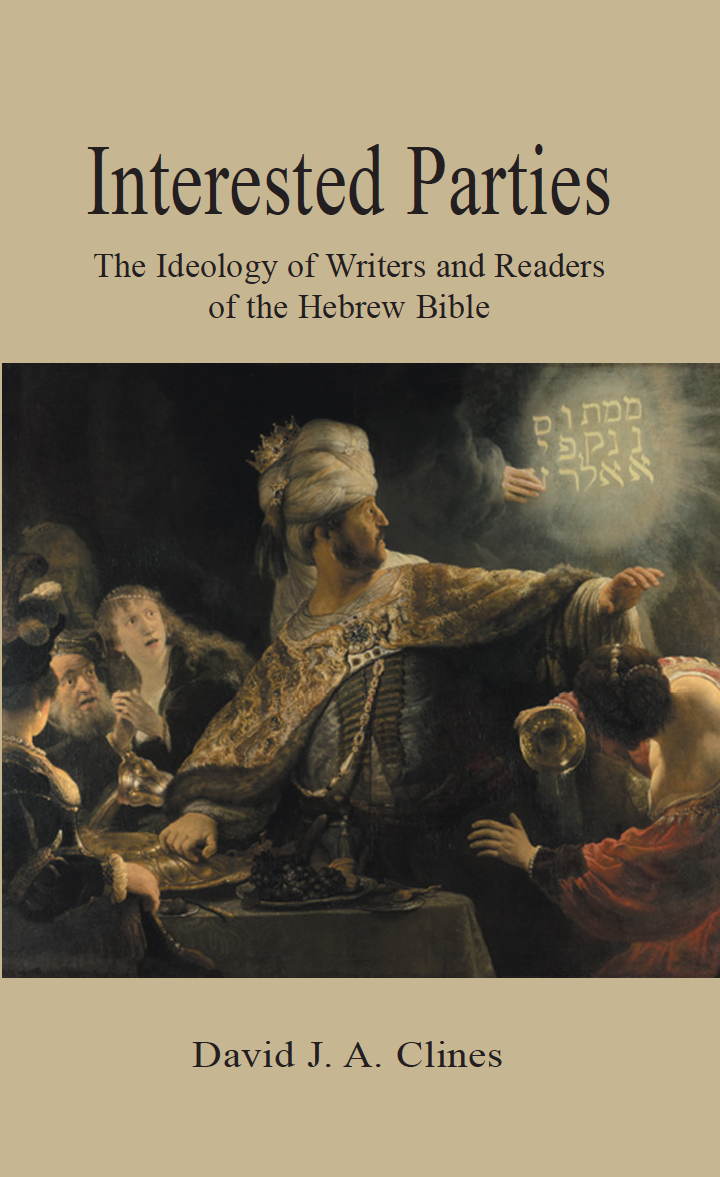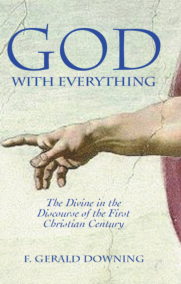Doing Biblical Masculinity Studies as Feminist Biblical Studies? Critical Interrogations
Published: Oct 2023
£60.00
This anthology presents a collaborative interrogation at the intersection of feminist biblical studies and biblical masculinity studies. The included essays make a compelling case for both feminist and masculist readers to recognize the advantage of engaging with each other. As they join forces, they produce research that not only brings female characters, gender issues or queer interpretation histories to the forefront but also interrogates critically male characters as well as androcentric and heteronormative conventions, viewpoints and norms. Connections to geopolitical, ethno-religious and other intersectional issues are part and parcel of the diverse range of approaches.
As a whole, then, the book expands the scholarly discourse from essentializing attention on ‘women’ or ‘men’ to a multifaceted (de)construction of gender that exposes gendered structures of domination in comprehensive ways. The shared goal is to halt reactionary gender discourses and to foster intersectional comprehension of texts and scholarship. Theoretical, historical, contemporary and textual considerations underscore the methodological, hermeneutical and exegetical value of this kind of work.
The volume is organized into three main parts. First, ‘Theoretical Considerations’, presents two essays illuminating meta-level assumptions and developments when biblical scholars embrace the interrelationship of feminist and masculinity studies in their work. Second, ‘Historical and Contemporary Considerations’, contains three essays examining the Bible in past and present cultural contexts. Third, ‘Textual Considerations’, features four essays focusing on specific passages with lenses informed by masculinity and feminist studies. All nine essays, and the three responses addressing them, invite readers to understand, critique and interrupt phallogocentric assumptions in texts, interpretation histories, and research of the Hebrew Bible.
Doing Biblical Masculinity Studies as Feminist Biblical Studies? Critical Interrogations
£60.00
This anthology presents a collaborative interrogation at the intersection of feminist biblical studies and biblical masculinity studies. The included essays make a compelling case for both feminist and masculist readers to recognize the advantage of engaging with each other. As they join forces, they produce research that not only brings female characters, gender issues or queer interpretation histories to the forefront but also interrogates critically male characters as well as androcentric and heteronormative conventions, viewpoints and norms. Connections to geopolitical, ethno-religious and other intersectional issues are part and parcel of the diverse range of approaches.
As a whole, then, the book expands the scholarly discourse from essentializing attention on ‘women’ or ‘men’ to a multifaceted (de)construction of gender that exposes gendered structures of domination in comprehensive ways. The shared goal is to halt reactionary gender discourses and to foster intersectional comprehension of texts and scholarship. Theoretical, historical, contemporary and textual considerations underscore the methodological, hermeneutical and exegetical value of this kind of work.
The volume is organized into three main parts. First, ‘Theoretical Considerations’, presents two essays illuminating meta-level assumptions and developments when biblical scholars embrace the interrelationship of feminist and masculinity studies in their work. Second, ‘Historical and Contemporary Considerations’, contains three essays examining the Bible in past and present cultural contexts. Third, ‘Textual Considerations’, features four essays focusing on specific passages with lenses informed by masculinity and feminist studies. All nine essays, and the three responses addressing them, invite readers to understand, critique and interrupt phallogocentric assumptions in texts, interpretation histories, and research of the Hebrew Bible.
Play the Man! Biblical Imperatives to Masculinity
Published: Apr 2023
£75.00
David J.A. Clines argues in Play the Man! that masculinity is a script, written for men by their societies, a script that men in their various cultures act out their whole lives long: 'no one is born a man'. He has been quick to deploy the insights of sociologists, historians, educationists, health professionals, psychologists and other scholars investigating masculinity in the contemporary and ancient worlds.
The book's title is a recognition of masculinity as performance, and the Bible's depictions of males in action as far more than information or entertainment; they function as demands on the men who read them or have them read to them. Hence the subtitle, Biblical Imperatives to Masculinity, presumes that every biblical reference to the masculine is some kind of authoritative command.
Clines—in this collection of writings prepared across three decades—has seen biblical texts as an excellent test bed for research into masculinity in one ancient culture as well as being an indubitable influence upon views and practices of masculinity in our own time.
The bulk of the book consists of studies of individual characters and texts of the Bible, analysing and profiling the masculinity that is there attested, assumed and encouraged. In conclusion, Clines reflects on the continuing impact of the biblical imperatives to masculinity, their effect on men, women and religion, in our own time.
Play the Man! Biblical Imperatives to Masculinity
£75.00
David J.A. Clines argues in Play the Man! that masculinity is a script, written for men by their societies, a script that men in their various cultures act out their whole lives long: 'no one is born a man'. He has been quick to deploy the insights of sociologists, historians, educationists, health professionals, psychologists and other scholars investigating masculinity in the contemporary and ancient worlds.
The book's title is a recognition of masculinity as performance, and the Bible's depictions of males in action as far more than information or entertainment; they function as demands on the men who read them or have them read to them. Hence the subtitle, Biblical Imperatives to Masculinity, presumes that every biblical reference to the masculine is some kind of authoritative command.
Clines—in this collection of writings prepared across three decades—has seen biblical texts as an excellent test bed for research into masculinity in one ancient culture as well as being an indubitable influence upon views and practices of masculinity in our own time.
The bulk of the book consists of studies of individual characters and texts of the Bible, analysing and profiling the masculinity that is there attested, assumed and encouraged. In conclusion, Clines reflects on the continuing impact of the biblical imperatives to masculinity, their effect on men, women and religion, in our own time.
Performing Masculinity in the Hebrew Bible
Published: Oct 2020
£65.00
In Performing Masculinity, the eminent Bulgarian literary critic Milena Kirova turns her attention to the Hebrew Bible, offering a reworking and condensation of two volumes of essays she published in Bulgarian in 2011 and 2017. Her chapters, each with an attractive and stimulating title, present a distinctive voice in current debates about masculinity in the Hebrew Bible.
Masculinity studies have been developing during the last half a century, but there is still some opposition, not always conscious, to the field. Studies in masculinity in the Bible have an even shorter history and have created as yet little by way of a tradition among biblical scholars: it is a field still under development.
Kirova has researched a rich variety of narrative situations, poetic characteristics, and symbolic functions of biblical men. Her research here is especially focused on the regal roles ascribed to masculinity in the ancient world.
Among the intriguing questions Kirova poses are these: Why should heroes be beautiful? What is the benefit of weeping, and weeping eloquently? Why problematize what is 'natural'? Who is the 'bramble king'? The ten chapters of Performing Masculinity are deliberately interdisciplinary: anthropology, psychoanalysis, literary and gender studies complement biblical criticism. A variety of audiences will find the book a pleasure and an education.
Performing Masculinity in the Hebrew Bible
£65.00
In Performing Masculinity, the eminent Bulgarian literary critic Milena Kirova turns her attention to the Hebrew Bible, offering a reworking and condensation of two volumes of essays she published in Bulgarian in 2011 and 2017. Her chapters, each with an attractive and stimulating title, present a distinctive voice in current debates about masculinity in the Hebrew Bible.
Masculinity studies have been developing during the last half a century, but there is still some opposition, not always conscious, to the field. Studies in masculinity in the Bible have an even shorter history and have created as yet little by way of a tradition among biblical scholars: it is a field still under development.
Kirova has researched a rich variety of narrative situations, poetic characteristics, and symbolic functions of biblical men. Her research here is especially focused on the regal roles ascribed to masculinity in the ancient world.
Among the intriguing questions Kirova poses are these: Why should heroes be beautiful? What is the benefit of weeping, and weeping eloquently? Why problematize what is 'natural'? Who is the 'bramble king'? The ten chapters of Performing Masculinity are deliberately interdisciplinary: anthropology, psychoanalysis, literary and gender studies complement biblical criticism. A variety of audiences will find the book a pleasure and an education.
Hebrew Masculinities Anew
Published: Jun 2019
£65.00
The study of biblical masculinities is now a clearly recognizable discipline in critical biblical gender studies. This book, the third in a series of SPP volumes that include Men and Masculinity in the Hebrew Bible and Beyond (ed. Ovidiu Creangă, 2010) and Biblical Masculinities Foregrounded (ed. Ovidiu Creangă and Peter-Ben Smit, 2014), takes stock of recent methodological and thematic developments, while introducing fresh new questions, expanding traditional approaches, and adding new texts to the corpus of masculinities in the Hebrew Bible.
The volume's introduction (Ovidiu Creangă) celebrates the rich palette of approaches and disciplinary intersections that now characterize the study of Hebrew Bible masculinities, while calling attention to understudied topics. The next thirteen chapters dig deep into the methodological building-blocks underpinning biblical masculinity (Stephen Wilson); the theoretically essential distinction between queer and non-queer masculinities (Gil Rosenberg); the often-neglected yet essential representation of God's masculinity (David J.A. Clines); the competing masculinities of God, Pharaoh, and Moses in historical and lesbian perspective (Caralie Focht and Richard Purcell); Queen Jezebel's performance of masculinity (Hilary Lipka); Priestly and Deuteronomic fantasies of male perfection (Sandra Jacobs); the problem-ridden masculinity of Moses (Amy Kalmanofsky); the rhetoric of 'queen-making' in the prophetic literature (Susan E. Haddox); Jonah's homosocial masculinity (Rhiannon Graybill); the scribal masculinity of Daniel (Brian C. DiPalma); the ephemeral masculinity of mortal men (Milena Kirova); the masculine agencies in the Song of Songs (Martti Nissinen); and the intertwining of money and masculinity in the Book of Proverbs (Kelly Murphy). In the final chapter, Stuart Macwilliam reflects on methodological opportunities, thematic expansions, and a future direction for biblical masculinities.
Hebrew Masculinities Anew
£65.00
The study of biblical masculinities is now a clearly recognizable discipline in critical biblical gender studies. This book, the third in a series of SPP volumes that include Men and Masculinity in the Hebrew Bible and Beyond (ed. Ovidiu Creangă, 2010) and Biblical Masculinities Foregrounded (ed. Ovidiu Creangă and Peter-Ben Smit, 2014), takes stock of recent methodological and thematic developments, while introducing fresh new questions, expanding traditional approaches, and adding new texts to the corpus of masculinities in the Hebrew Bible.
The volume's introduction (Ovidiu Creangă) celebrates the rich palette of approaches and disciplinary intersections that now characterize the study of Hebrew Bible masculinities, while calling attention to understudied topics. The next thirteen chapters dig deep into the methodological building-blocks underpinning biblical masculinity (Stephen Wilson); the theoretically essential distinction between queer and non-queer masculinities (Gil Rosenberg); the often-neglected yet essential representation of God's masculinity (David J.A. Clines); the competing masculinities of God, Pharaoh, and Moses in historical and lesbian perspective (Caralie Focht and Richard Purcell); Queen Jezebel's performance of masculinity (Hilary Lipka); Priestly and Deuteronomic fantasies of male perfection (Sandra Jacobs); the problem-ridden masculinity of Moses (Amy Kalmanofsky); the rhetoric of 'queen-making' in the prophetic literature (Susan E. Haddox); Jonah's homosocial masculinity (Rhiannon Graybill); the scribal masculinity of Daniel (Brian C. DiPalma); the ephemeral masculinity of mortal men (Milena Kirova); the masculine agencies in the Song of Songs (Martti Nissinen); and the intertwining of money and masculinity in the Book of Proverbs (Kelly Murphy). In the final chapter, Stuart Macwilliam reflects on methodological opportunities, thematic expansions, and a future direction for biblical masculinities.
Biblical Masculinities Foregrounded
Published: Oct 2017
Price range: £25.00 through £65.00
Biblical Masculinities Foregrounded brings together ten innovative studies on varieties of masculinity evidenced in the Hebrew Bible, the New Testament and other early Christian writings. A sequel to the 2010 collection, Men and Masculinity in the Hebrew Bible and Beyond, this new volume raises important questions about why the study of biblical masculinities matters, what it contributes to our knowledge of the ancient writers' world as well as to our contemporary world, and which methods adequately attend to that study. The volume is designed as a resource for scholars of both Testaments working from a variety of biblical traditions and ideological perspectives on masculinity.
The following studies are offered as companions in the conversation: Yahweh's masculinity in appearances in glory in Exodus and Ezekiel (Alan Hooker); Proverbs' (de)construction of masculinity (Hilary Lipka); Saul's troubled masculinity in 1 —2 Samuel (Marcel M€Äcelaru); weeping men in the Torah and the Deuteronomistic history (Milena Kirova); Athaliah's manly rule (Stuart Macwilliam); Joseph of Nazareth as an everyday man (Justin Glessner); being a male disciple in Matthew's 'antitheses' (Hans-Ulrich Weidemann); eunuch masculinity in Matthew's Gospel (Susanna Asikainen); masculinity and circumcision in the first century (Karin Neutel and Matthew Anderson); and Thecla's masculinity in the Acts of Thecla (Peter-Ben Smit). Ovidiu Creangă opens the volume with a critical appraisal of the current state of play in the field, while Martti Nissinen and Bjorn Krondorfer offer closing critical reflections that situate the book's topics within broader debates regarding masculinities in religious studies.
Biblical Masculinities Foregrounded
Price range: £25.00 through £65.00
Biblical Masculinities Foregrounded brings together ten innovative studies on varieties of masculinity evidenced in the Hebrew Bible, the New Testament and other early Christian writings. A sequel to the 2010 collection, Men and Masculinity in the Hebrew Bible and Beyond, this new volume raises important questions about why the study of biblical masculinities matters, what it contributes to our knowledge of the ancient writers' world as well as to our contemporary world, and which methods adequately attend to that study. The volume is designed as a resource for scholars of both Testaments working from a variety of biblical traditions and ideological perspectives on masculinity.
The following studies are offered as companions in the conversation: Yahweh's masculinity in appearances in glory in Exodus and Ezekiel (Alan Hooker); Proverbs' (de)construction of masculinity (Hilary Lipka); Saul's troubled masculinity in 1 —2 Samuel (Marcel M€Äcelaru); weeping men in the Torah and the Deuteronomistic history (Milena Kirova); Athaliah's manly rule (Stuart Macwilliam); Joseph of Nazareth as an everyday man (Justin Glessner); being a male disciple in Matthew's 'antitheses' (Hans-Ulrich Weidemann); eunuch masculinity in Matthew's Gospel (Susanna Asikainen); masculinity and circumcision in the first century (Karin Neutel and Matthew Anderson); and Thecla's masculinity in the Acts of Thecla (Peter-Ben Smit). Ovidiu Creangă opens the volume with a critical appraisal of the current state of play in the field, while Martti Nissinen and Bjorn Krondorfer offer closing critical reflections that situate the book's topics within broader debates regarding masculinities in religious studies.
When Men Were Not Men: Masculinity and Otherness in the Pastoral Epistles
Published: Nov 2014
£50.00
We are almost never encouraged in contemporary exegesis of the Pastoral Epistles to take the side of those 'dubious' and 'deviant' characters against whom our biblical author sets himself. When Men Were Not Men: Masculinity and Otherness in the Pastoral Epistles dares to give voice to those 'others' as a way to challenge the Pastor's (and his allies) 'performance' of masculinity. By deliberately highlighting texts where issues of masculinity, gender, power, race, money, (ab)use of religion and otherness are present in the Pastoral Epistles, Villalobos meticulously gazes upon bodies that have been marked as other by the sexist, racist, and homophobic abuse of these texts.
Why does the author of the PE constantly situate the 'others' in the place where Satan reigns? Why does he constantly repeat that those 'others' have deviated so greatly from the Pastor's right teaching? Why is he so obsessed with presenting himself as the legitimate promoter of right teaching? Why is the Pastor so eager to maintain the hierarchical household that privileges male over female, free bodies over slaves, manly men over effeminate bodies?
These are some of the questions Villalobos addresses in When Men Were Not Men. He shows that all these questions have to do with issues of masculinity and the proper performance of being a 'real man'. He concludes that in fact no one even among the inner circle of the author's friends was a model of pure masculinity, and that they themselves not infrequently demonstrate the kinds of behaviour he himself inveighs against.
When Men Were Not Men: Masculinity and Otherness in the Pastoral Epistles
£50.00
We are almost never encouraged in contemporary exegesis of the Pastoral Epistles to take the side of those 'dubious' and 'deviant' characters against whom our biblical author sets himself. When Men Were Not Men: Masculinity and Otherness in the Pastoral Epistles dares to give voice to those 'others' as a way to challenge the Pastor's (and his allies) 'performance' of masculinity. By deliberately highlighting texts where issues of masculinity, gender, power, race, money, (ab)use of religion and otherness are present in the Pastoral Epistles, Villalobos meticulously gazes upon bodies that have been marked as other by the sexist, racist, and homophobic abuse of these texts.
Why does the author of the PE constantly situate the 'others' in the place where Satan reigns? Why does he constantly repeat that those 'others' have deviated so greatly from the Pastor's right teaching? Why is he so obsessed with presenting himself as the legitimate promoter of right teaching? Why is the Pastor so eager to maintain the hierarchical household that privileges male over female, free bodies over slaves, manly men over effeminate bodies?
These are some of the questions Villalobos addresses in When Men Were Not Men. He shows that all these questions have to do with issues of masculinity and the proper performance of being a 'real man'. He concludes that in fact no one even among the inner circle of the author's friends was a model of pure masculinity, and that they themselves not infrequently demonstrate the kinds of behaviour he himself inveighs against.
Preposterous Revelations: Visions of Apocalypse and Martyrdom in Hollywood Cinema 1980-2000
Published: Jan 2012
£21.00
This is an ambitious attempt to produce an interdisciplinary reading of a set of relatively recent Hollywood films that appear to make references to the biblical genre of apocalyptic and associated ideas of Christian martyrdom and eschatology: End of Days , Armageddon , Alien3 , The Rapture , The Seventh Sign . It is a 'preposterous' reading (Mieke Bal's term), reversing a common-sense impulse to view what comes first chronologically (the biblical text) as an unproblematic template rather than as itself the consequence of subsequent, contextualized readings. The cinematic reworkings Copier describes shift our understanding of both texts (biblical and cinematic) and genre. Within this process, the apocalyptic subject —the martyr —adopts variable poses that reflect the effects of this disorienting reversal: across the five films analysed, the martyr moves from identifiably Christian motivations to the representation of patriotic American masculinity, or even to something that, in a contrary sense, powerfully challenges the conventional masculinity of any martyrdom that counts as significant. To achieve a genuine interdisciplinarity, Copier not only avoids reading each film as if it were simply the visual counterpart to a (biblical) narrative, but also analyses in the case of each film what the 'shot list' of a key sequence reveals about the semiotics at work within its construction. Unlike most encounters between religion and film, her film analysis goes far beyond the identification of themes and motifs. Here the author engages with the larger field of film studies, and especially with film as a visual medium.
Preposterous Revelations: Visions of Apocalypse and Martyrdom in Hollywood Cinema 1980-2000
£21.00
This is an ambitious attempt to produce an interdisciplinary reading of a set of relatively recent Hollywood films that appear to make references to the biblical genre of apocalyptic and associated ideas of Christian martyrdom and eschatology: End of Days , Armageddon , Alien3 , The Rapture , The Seventh Sign . It is a 'preposterous' reading (Mieke Bal's term), reversing a common-sense impulse to view what comes first chronologically (the biblical text) as an unproblematic template rather than as itself the consequence of subsequent, contextualized readings. The cinematic reworkings Copier describes shift our understanding of both texts (biblical and cinematic) and genre. Within this process, the apocalyptic subject —the martyr —adopts variable poses that reflect the effects of this disorienting reversal: across the five films analysed, the martyr moves from identifiably Christian motivations to the representation of patriotic American masculinity, or even to something that, in a contrary sense, powerfully challenges the conventional masculinity of any martyrdom that counts as significant. To achieve a genuine interdisciplinarity, Copier not only avoids reading each film as if it were simply the visual counterpart to a (biblical) narrative, but also analyses in the case of each film what the 'shot list' of a key sequence reveals about the semiotics at work within its construction. Unlike most encounters between religion and film, her film analysis goes far beyond the identification of themes and motifs. Here the author engages with the larger field of film studies, and especially with film as a visual medium.
Men and Masculinity in the Hebrew Bible and Beyond
Published: Nov 2010
£60.00
The study of masculinity in the Bible is increasingly becoming established as a field of critical inquiry in biblical gender studies. This book highlights a variety of methodological approaches that reveal the complex and multifaceted construction of masculinity in biblical and post-biblical literature. It focuses uniquely and explicitly on men and the world they inhabit, documenting changes in the type of men and masculinities deemed legitimate, or illegitimate, across various social and historical contexts of the ancient Near East. At the same time, it interrogates readers' assumptions about the writers' positioning of male bodies, sexuality and relationships in a gender order created to reflect men's interests, yet in need of constant reordering.
In this volume specific features of biblical masculinity are explored: the masculinity of less favoured sons in Genesis (Susan Haddox); the ideology of Temple masculinity in Chronicles (Roland Boer); the masculinity of Moses (Brian DiPalma); the performative nature of masculinity in the Sinai episode (David Clines); Deuteronomy's regimentation of masculinity (Mark George); Joshua's hegemonic masculinity in the Conquest Narrative (Ovidiu Creangă); Naaman's disability in relation to ideologies of masculinity (Cheryl Strimple and Ovidiu Creangă); Job's position as a man in charge in the Testament of Job (Maria Haralambakis); Priestly notions of sexuality in the covenant of the rainbow and circumcision in Genesis (Sandra Jacobs); Samson's masculinity in terms of male honour (Ela Lazarewicz-Wyrzykowska); the popular depiction of Jeremiah as a 'lamenting prophet' against the book of Jeremiah's male ideology (C.J. Patrick Davis); the gendered interaction of a Bible-study group with Daniel's dreams (Andrew Todd). Finally, David Clines and Stephen Moore offer closing critical reflections that situate the book's topics within a broader spectrum of issues in masculinity.
Men and Masculinity in the Hebrew Bible and Beyond
£60.00
The study of masculinity in the Bible is increasingly becoming established as a field of critical inquiry in biblical gender studies. This book highlights a variety of methodological approaches that reveal the complex and multifaceted construction of masculinity in biblical and post-biblical literature. It focuses uniquely and explicitly on men and the world they inhabit, documenting changes in the type of men and masculinities deemed legitimate, or illegitimate, across various social and historical contexts of the ancient Near East. At the same time, it interrogates readers' assumptions about the writers' positioning of male bodies, sexuality and relationships in a gender order created to reflect men's interests, yet in need of constant reordering.
In this volume specific features of biblical masculinity are explored: the masculinity of less favoured sons in Genesis (Susan Haddox); the ideology of Temple masculinity in Chronicles (Roland Boer); the masculinity of Moses (Brian DiPalma); the performative nature of masculinity in the Sinai episode (David Clines); Deuteronomy's regimentation of masculinity (Mark George); Joshua's hegemonic masculinity in the Conquest Narrative (Ovidiu Creangă); Naaman's disability in relation to ideologies of masculinity (Cheryl Strimple and Ovidiu Creangă); Job's position as a man in charge in the Testament of Job (Maria Haralambakis); Priestly notions of sexuality in the covenant of the rainbow and circumcision in Genesis (Sandra Jacobs); Samson's masculinity in terms of male honour (Ela Lazarewicz-Wyrzykowska); the popular depiction of Jeremiah as a 'lamenting prophet' against the book of Jeremiah's male ideology (C.J. Patrick Davis); the gendered interaction of a Bible-study group with Daniel's dreams (Andrew Todd). Finally, David Clines and Stephen Moore offer closing critical reflections that situate the book's topics within a broader spectrum of issues in masculinity.
A Question of Sex? Gender and Difference in the Hebrew Bible and Beyond
Published: Dec 2009
Price range: £17.50 through £45.00
Gender differences between men and women are not just a matter of sexual differentiation; the roles that men and women play are also socially and culturally determined, in ancient Israel and post-biblical Judaism as in every other context.
That is the theme of these ten studies. The first part of the volume examines the gender definitions and roles that can be identified in the Hebrew Bible's legal and ritual texts. The second part uses archaeological and anthropological perspectives to interrogate the biblical text and the society that formed it on issues of gender. The third part explores similar gender issues in a range of material outside the Hebrew Bible, from the Apocrypha through Josephus and Philo down to mediaeval Jewish marriage contracts (ketubbot).
Among the questions here discussed are: Why are men, but not women, required to bathe in order to achieve ritual purity after incurring certain types of defilement? What understandings of masculinity and femininity underlie the regulations about incest? Was ancient Israel simply a patriarchal society, or were there more complex dynamics of power in which women as well as men were involved? What do post-biblical re-interpretations of the female figures of Wisdom and Folly in Proverbs 1 —9 suggest about heterosexual masculinity? And what kind of rights did mediaeval Middle-Eastern Jewish women have within their marriage relationships?
This is the first volume in the sub-series King's College London Studies in the Bible and Gender. The second is Embroidered Garments: Priests and Gender in Biblical Israel (2009).
A Question of Sex? Gender and Difference in the Hebrew Bible and Beyond
Price range: £17.50 through £45.00
Gender differences between men and women are not just a matter of sexual differentiation; the roles that men and women play are also socially and culturally determined, in ancient Israel and post-biblical Judaism as in every other context.
That is the theme of these ten studies. The first part of the volume examines the gender definitions and roles that can be identified in the Hebrew Bible's legal and ritual texts. The second part uses archaeological and anthropological perspectives to interrogate the biblical text and the society that formed it on issues of gender. The third part explores similar gender issues in a range of material outside the Hebrew Bible, from the Apocrypha through Josephus and Philo down to mediaeval Jewish marriage contracts (ketubbot).
Among the questions here discussed are: Why are men, but not women, required to bathe in order to achieve ritual purity after incurring certain types of defilement? What understandings of masculinity and femininity underlie the regulations about incest? Was ancient Israel simply a patriarchal society, or were there more complex dynamics of power in which women as well as men were involved? What do post-biblical re-interpretations of the female figures of Wisdom and Folly in Proverbs 1 —9 suggest about heterosexual masculinity? And what kind of rights did mediaeval Middle-Eastern Jewish women have within their marriage relationships?
This is the first volume in the sub-series King's College London Studies in the Bible and Gender. The second is Embroidered Garments: Priests and Gender in Biblical Israel (2009).
Embroidered Garments: Priests and Gender in Biblical Israel
Published: Oct 2009
£45.00
This collection of essays, the proceedings of an international conference held at King's College London in 2008, explores issues in the construction of gender that appear in the Hebrew Bible both in relation to priesthood itself and in literature with a priestly world-view (the P source, Chronicles, Ezra —Nehemiah, Ezekiel). Topics covered include female religious functionaries and their absence from the Hebrew Bible, masculinity and femininity as seen through the lens of priestly purity legislation, priestly genealogies as an expression of Jacques Derrida's 'archive fever', the definition of masculinity that is evidenced by priests' clothing, and the marginalization of women in priestly ideologies of nationality and kinship.
This is the second volume in the sub-series King's College London Studies in the Bible and Gender. The first was A Question of Sex: Gender and Difference in the Hebrew Bible and Beyond (2007).
Embroidered Garments: Priests and Gender in Biblical Israel
£45.00
This collection of essays, the proceedings of an international conference held at King's College London in 2008, explores issues in the construction of gender that appear in the Hebrew Bible both in relation to priesthood itself and in literature with a priestly world-view (the P source, Chronicles, Ezra —Nehemiah, Ezekiel). Topics covered include female religious functionaries and their absence from the Hebrew Bible, masculinity and femininity as seen through the lens of priestly purity legislation, priestly genealogies as an expression of Jacques Derrida's 'archive fever', the definition of masculinity that is evidenced by priests' clothing, and the marginalization of women in priestly ideologies of nationality and kinship.
This is the second volume in the sub-series King's College London Studies in the Bible and Gender. The first was A Question of Sex: Gender and Difference in the Hebrew Bible and Beyond (2007).
Interested Parties: The Ideology of Writers and Readers of the Hebrew BIble
Published: Oct 2009
£17.50
There is a twin focus in this volume. The title of a keynote essay —'Why Is There a Song of Songs, and What Does It Do to You If You Read It?' —hints at it. The focus is equally on the ideologies of the writers of the Hebrew Bible, who brought the text into being, and on the ideologies of its readers, who are being shaped by the text at the same moment that they are shaping it in their own image. Uncovering the ideologies of writers are readers is the project of this book, calling for a step beyond the usual scholarly goal of understanding —to a practice of the art of critique.
Among the other chapters in this challenging book are: The Ten Commandments: Reading from Left to Right, Metacommentating Amos, Haggai's Temple, Constructed, Deconstructed and Reconstructed, David the Man: The Construction of Masculinity in the Hebrew Bible, Psalm 2 and the MLF (Moabite Liberation Front), God in the Pentateuch: Reading against the Grain. This is a reprint of the original 1995 edition.
Interested Parties: The Ideology of Writers and Readers of the Hebrew BIble
£17.50
There is a twin focus in this volume. The title of a keynote essay —'Why Is There a Song of Songs, and What Does It Do to You If You Read It?' —hints at it. The focus is equally on the ideologies of the writers of the Hebrew Bible, who brought the text into being, and on the ideologies of its readers, who are being shaped by the text at the same moment that they are shaping it in their own image. Uncovering the ideologies of writers are readers is the project of this book, calling for a step beyond the usual scholarly goal of understanding —to a practice of the art of critique.
Among the other chapters in this challenging book are: The Ten Commandments: Reading from Left to Right, Metacommentating Amos, Haggai's Temple, Constructed, Deconstructed and Reconstructed, David the Man: The Construction of Masculinity in the Hebrew Bible, Psalm 2 and the MLF (Moabite Liberation Front), God in the Pentateuch: Reading against the Grain. This is a reprint of the original 1995 edition.


